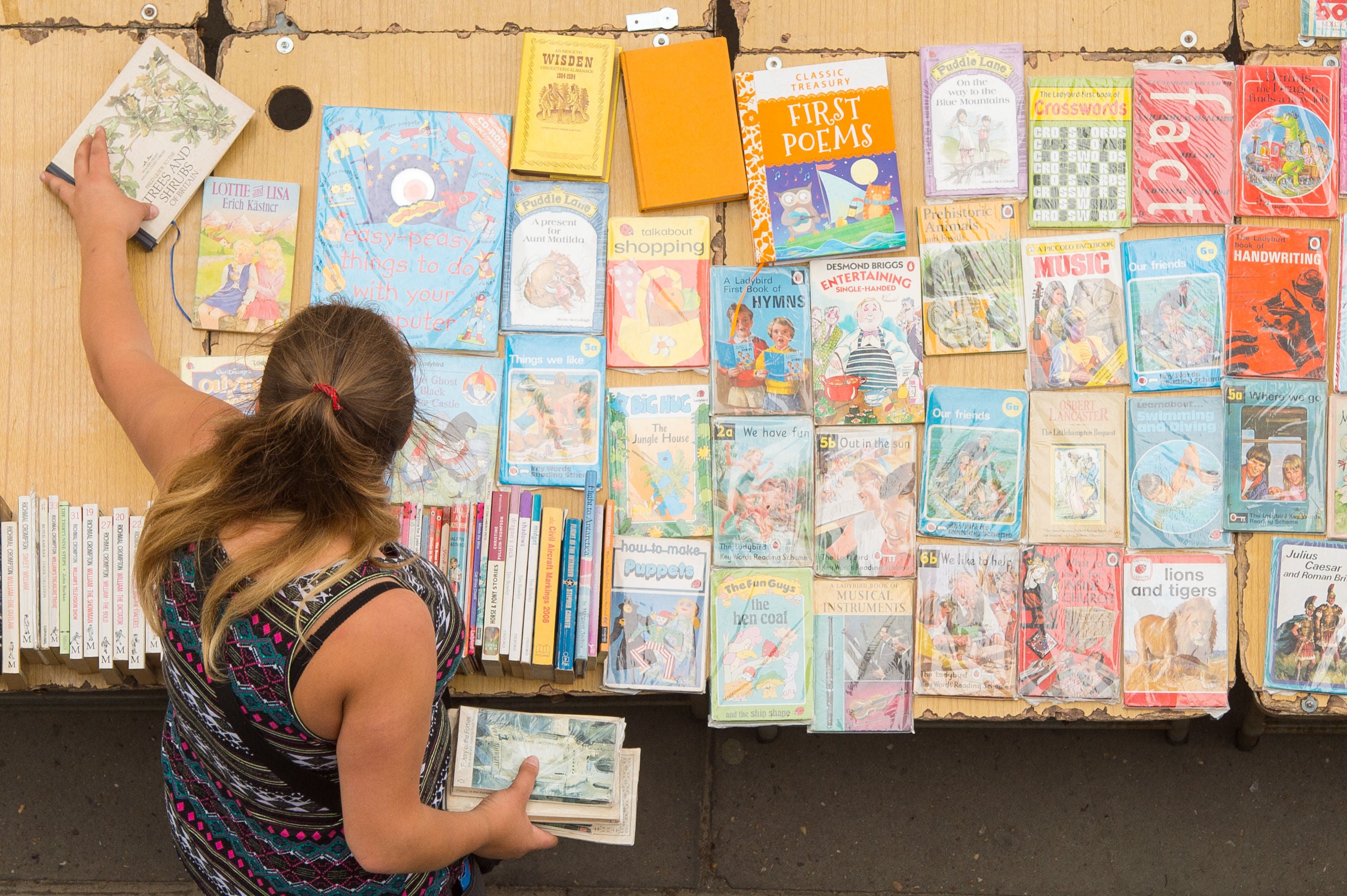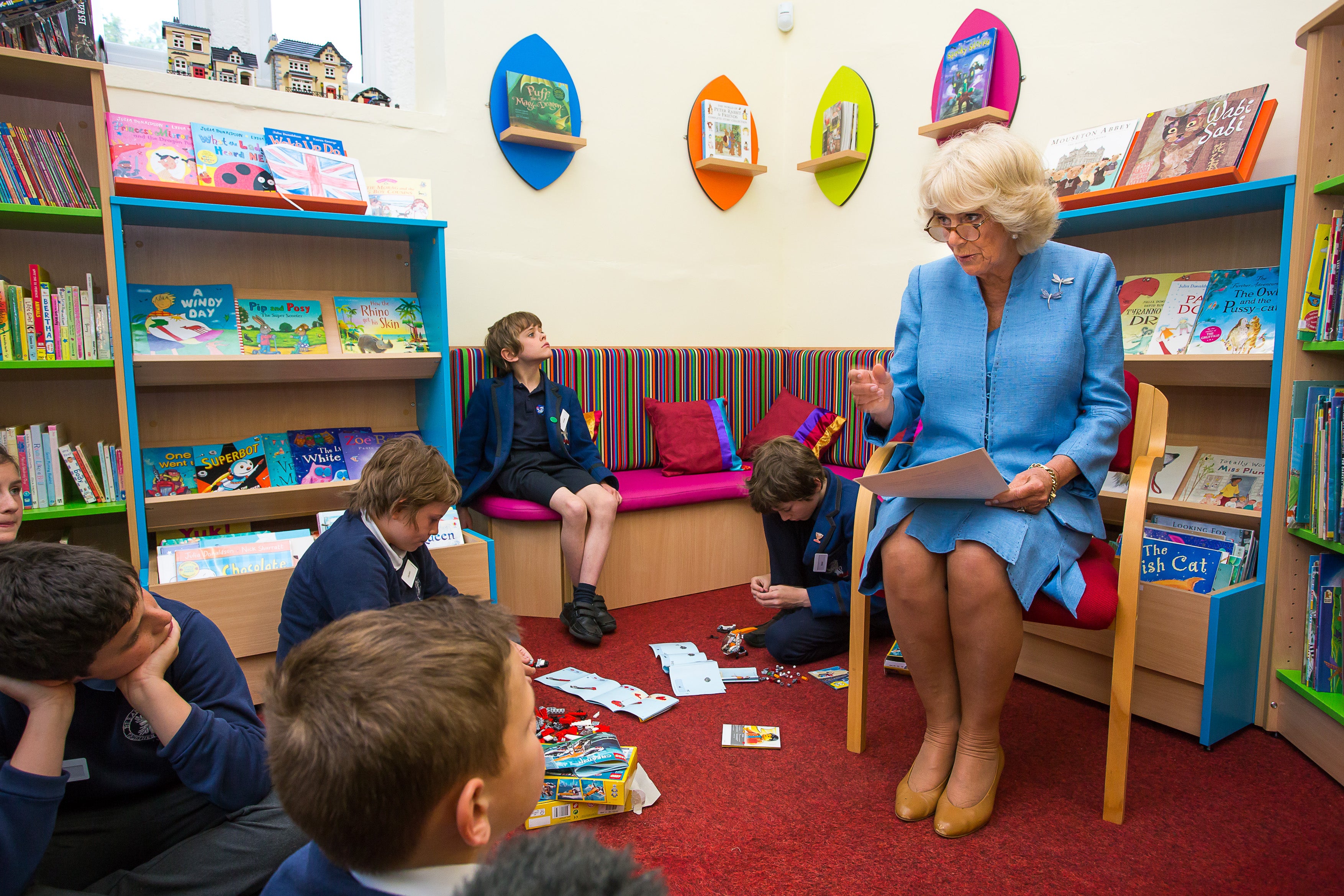Poor literacy in children could cost economy £830m after pandemic slows reading skills
Around 187,000 five-year-olds in England – or 30 per cent – are falling behind their expected reading levels
Your support helps us to tell the story
From reproductive rights to climate change to Big Tech, The Independent is on the ground when the story is developing. Whether it's investigating the financials of Elon Musk's pro-Trump PAC or producing our latest documentary, 'The A Word', which shines a light on the American women fighting for reproductive rights, we know how important it is to parse out the facts from the messaging.
At such a critical moment in US history, we need reporters on the ground. Your donation allows us to keep sending journalists to speak to both sides of the story.
The Independent is trusted by Americans across the entire political spectrum. And unlike many other quality news outlets, we choose not to lock Americans out of our reporting and analysis with paywalls. We believe quality journalism should be available to everyone, paid for by those who can afford it.
Your support makes all the difference.Poor literacy levels in young children could cost the economy £830m, a think tank has said, as data reveals how children in disadvantaged areas are falling behind their peers.
Around 187,000 five-year-olds in England – or 30 per cent – are falling behind their expected reading levels, data from the year 2022/23 showed. This is compared to 27 per cent in 2018/19.
An increasing number of families have been unable to access the right early years support in the wake of the pandemic and the cost of living crisis, experts said. Lockdowns also meant that families didn’t have access to education and care at key stages of their children’s development, the National Literacy Trust said.
Some 125,000 five-year-olds – 20 per cent of their cohort – are also behind on their communication and language skills. This is compared to 18 per cent in 2018/19.
Researchers found that poor literacy skills will end up costing the economy £830m over the lifetimes of each year group of five-year-olds, or £7,800 per child.

This adds up to a £5,300 loss in potential earnings per child over their lifetime, research from Pro Bono Economics has found. It will also cost an average of £2,500 per child in additional support from the government, the charity said.
Those in more deprived areas of the country are the worst affected, with 43,000 of the five-year-olds not meeting the right reading levels living in these regions.
In Birmingham, Liverpool and Manchester, more than a quarter of five-year-olds have low levels of literacy, researchers found.
In the year 2022-2023, the North West, North East, West Midlands, and Yorkshire and the Humber were among the regions with the highest rates of children struggling to meet the literacy standards.
Jonathan Douglas, chief executive of the National Literacy Trust, called on the government and local businesses to support their campaign of outreach to children in areas hit worst by the cost of living crisis.
He said: “We know that experiencing poverty has a huge effect on a child’s early communication, language and literacy skills, and that this will have consequences for their learning, their confidence, their wellbeing, and their ability to thrive for the rest of their lives.”

Matt Whittaker, CEO of Pro Bono Economics, said: “That so many young children are reaching reception so far behind in basic reading and communication skills should raise alarm bells everywhere.”
Rachel Hopcroft, head of corporate affairs at KPMG UK, who commissioned the research, said that “at age five, far too many children are needlessly falling short of the expected standard, before they’ve even been given a proper chance in life”.
She added that the research showed “this not only impacts our economy, but it curtails access to career opportunities and earnings potential later in life – especially among those from deprived backgrounds”.
A Department for Education spokesperson said: “Our plan is working, with primary aged children in England ranked as the best readers in the western world, coming 4th globally in the recent PIRLS international rankings. Through the introduction of the Phonics Screening Check, the percentage of children meeting the expected standards has risen by a third since 2012 to 80 percent across the country.
“We are continuing to deliver on our plan to give every child a world class education, which is why education standards have risen sharply across the country, with 89 per cent of schools now rated good or outstanding by Ofsted, up from just 68 per cent in 2010 - and pupils’ performance is some of the best globally.”
Subscribe to Independent Premium to bookmark this article
Want to bookmark your favourite articles and stories to read or reference later? Start your Independent Premium subscription today.

Join our commenting forum
Join thought-provoking conversations, follow other Independent readers and see their replies
Comments